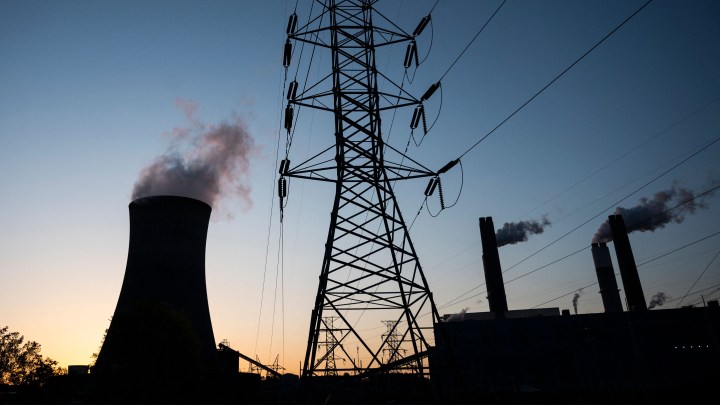
Is climate change a blind spot for CEOs? Or a problem for the next guy to worry about?
Is climate change a blind spot for CEOs? Or a problem for the next guy to worry about?

A survey of senior business leaders at private and public companies found that just half see climate change as a risk to their organizations. And fewer than 20% consider it a serious risk, according to the survey from accounting firm PwC. Many companies are doing next to nothing to prepare for climate-related disruptions.
Charlotte Howard, executive editor of The Economist, has been watching these trends for a long time. She spoke about them with “Marketplace Morning Report” host Nova Safo. The following is an edited transcript of their conversation.
Nova Safo: Is climate change a blind spot at corporate C-suites?
Charlotte Howard: Well, you have to think about all the things that companies are grappling with at the moment. So they face these really big questions, like do they disentangle their supply chains from China? How do they deal with inflation? Will artificial intelligence change their business? And in addition to those other priorities, they’re thinking about the timeframe in which they’re judged, right? So is a CEO preparing for the next decade or the next quarter? And all of those factors mean that you have some companies that are taking climate change really seriously and a lot that aren’t.
Safo: Presumably because most CEOs are judged by the next quarter, not the next decade. Is that right?
Howard: Yeah, for the most part, that’s true. And so one way in which you see this playing out is that there are a lot of companies that have set — particularly big companies — that have set net-zero targets for 2050. Now that gets you a good press release in the short term. It also is convenient in that it will surely be a goal on which a successor is judged, not the CEO who said it. So there are some companies that really are taking steps, but, for a lot of companies, it’s more lip service.
Safo: And what about those companies that are setting those near-term targets? How are they successfully dealing with potential disruptions from climate change? What does that look like?
Howard: Well, it’s interesting, there are different ways that a company can be affected by climate change. So, in some instances, think about a food company. They’re considering the risk of drought or they’re considering whether their factories might be impacted by rising sea levels or more frequent storms.
There are also companies that have to deal with, not just the risk from climate change itself, but the risk of stricter climate regulation. So you can imagine a company that may be thinking about a carbon tax at some point in the future and how it would affect its business. Or shifting patterns of consumer behavior. If a carmaker wasn’t investing in EVs, and there was huge consumer demand for electric vehicles, that carmaker would be caught out. So there are a number of ways in which companies can deal with this.
Safo: So very direct effects on production, on the way they acquire materials or the way they even process materials, potentially, in the future?
Howard: Yeah, exactly. And it’s interesting, the different time horizons in which companies are thinking, as I referenced before. For a food company that was dependent on grain from Ukraine, you have a very immediate impact, right, in terms of thinking about their supply chain. And then you might have a really severe drought in a given year that makes these risks from climate change feel extremely immediate. And then there are other things that are just much more long-term. And I think that’s what you see reflected in that PricewaterhouseCoopers survey. That, for many companies, this just feels like something that they’ll have to deal with at some point, but not on a given CEO’s watch.
There’s a lot happening in the world. Through it all, Marketplace is here for you.
You rely on Marketplace to break down the world’s events and tell you how it affects you in a fact-based, approachable way. We rely on your financial support to keep making that possible.
Your donation today powers the independent journalism that you rely on. For just $5/month, you can help sustain Marketplace so we can keep reporting on the things that matter to you.

















